Reviews
Gereon Wetzel
Germany, 2010
Credits
Review by Katherine Follett
Posted on 12 May 2011
Source Projected DVD
Categories The 2011 Independent Film Festival Boston
It’s easy to be exasperated with molecular gastronomy. Some people consider it the edible version of an affectation, with its teeny-tiny vessels of unrecognizable concoctions that sometimes defy the very definition of “food” (one chef serves pillows of scented air) and invariably demand shocking prices. El Bulli, a Spanish Michelin 3-star restaurant run by chef Ferran Adrià, is one of the usual suspects. His restaurant requires reservations a year in advance, partly because it is open for only a few months annually, with the remainder of the year spent researching and developing the menu. It is this process that filmmaker Gereon Wetzel set out to document in El Bulli: Cooking in Progress.
El Bulli is a rather hands-off, Wiseman-style documentary with no narration or interviews, and only the most succinct intertitles to let us know the time and location. As such, it’s difficult to know the filmmaker’s intentions; he could be preaching to the haute-cuisine choir. But the film also has the effect of shifting how we might define what goes on at Adrià’s restaurant. By the end, it’s clear that this isn’t a documentary about food: it’s a documentary about art.
Ferran Adrià and his staff spend months testing the new ingredients, combinations, and presentations for the next season at El Bulli. Molecular gastronomy likens itself to science, and the team spends a lot of time testing every possible variable and laboratory-like technique. Should the sweet potatoes be dehydrated, vacuum-juiced, or just thrown through the juicer? What happens when you wrap them in pockets of edible paper? But as ideas begin to fly, it becomes clear that the chefs at El Bulli work more like musicians or studio artists than scientists. They spend days improvising, throwing anything and everything at the plate, looking for something they’ve never tasted before. Then they test and refine and recombine, sometimes spending weeks tweaking one recipe they just can’t seem to perfect, other times stumbling on something brilliant by accident. The head chef, sous chef, and various assistants do most of the grunt-work, with Adrià coming off as a classic scary-perfectionist boss, whirling in and out of the research kitchen with a phone glued to his ear, pausing only long enough to swallow one spoonful of a precious new creation and toss off a merciless critique. It’s clear that his palette has the final word.
The tense-but-creative dynamic lends the film a surprising amount of humor. It’s riveting to watch the head chef, an incredibly talented person at the top of his profession, fail to suppress his terrified expression as he awaits his boss’s reaction to a beloved new project. And it’s hilarious to watch the same person turn around and rain that reaction down on the next level of the hierarchy through bluster and bluff while everyone rolls their eyes. The staff’s childlike willingness to experiment with nearly any combination is also a delight. On one of the restaurant’s first nights, a chef impeccably lofts his ingredients into the dining room to mix a special cocktail made with oil and water, only to rush back into the kitchen, completely flustered. “I accidentally brought out carbonated water. I froze! I saw the bubbles, and I couldn’t move!” “Carbonated?” Adrià barks, but then reconsiders. “Try it. Maybe it’s good!”
At times the elevation of dining to art seems itself a bit of a joke. The audience can’t help but laugh in pity at the kid who was sent out to rake the enormous gravel driveway of the restaurant every day, as if it were a Zen rock garden. It’s also hilariously incongruous when an assistant chef appears in a T-shirt that read, in enormous letters, NEW YORK FUCKIN CITY. But as the documentary goes on and we get to know these people and how deeply they cared about their work, you can’t help but be moved. Toward the end of the film, the genius Adrià himself is finally humanized, telling a gathering of terrified new prep-cooks and servers that what they work for, above all, is “magic.”
I almost wish this detail and the rest of Adrià’s passionate speech about his personal philosophy had come earlier in the film. As it was, the documentary opened itself up very slowly. After a startling and gorgeous opening, inter-cutting the controlled-chaos dance of a working kitchen with beautiful titles formed using an illuminated spice rack, the scene shifts to the lab, and the shots drag on to the point of tedium. But even these slow, deliberate scenes serve to ground the rarified world of experimental food, turning it into something passionate, joyful, effortful, and creative—and touchingly human.
More The 2011 Independent Film Festival Boston
-
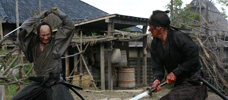
13 Assassins
2010 -

Ivan & Ivana
2011 -

Being Elmo: A Puppeteer’s Journey
2011 -

Bellflower
2011 -

Convento
2011 -
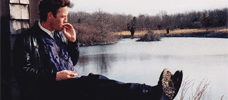
Cure for Pain: The Mark Sandman Story
2011 -

The Trip
2010 -
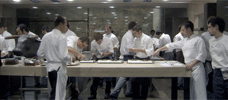
El Bulli
2010 -

Submarine
2010 -

Stake Land
2010 -

Another Earth
2010 -

If a Tree Falls
2011 -
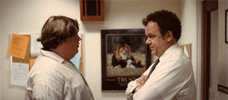
Terri
2011 -
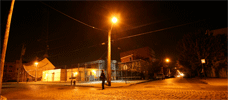
The City Dark
2011 -

Littlerock
2010 -
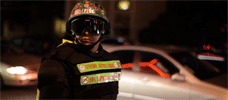
Superheroes
2011 -
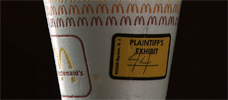
Hot Coffee
2011 -
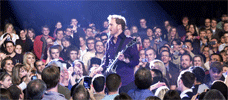
Conan O’Brien Can’t Stop
2011
We don’t do comments anymore, but you may contact us here or find us on Twitter or Facebook.



